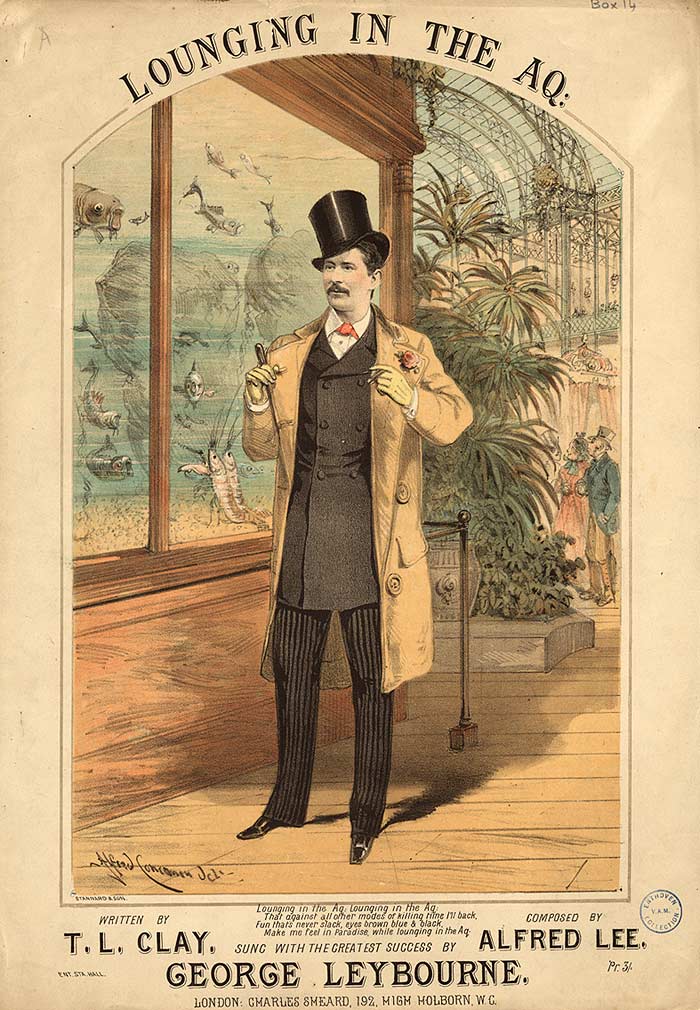
George Leybourne (1842–1864), one of the first lions comiques, on a sheet music cover by Alfred Concanen
Wikimedia Commons
Wikimedia Commons
The lion comique was a type of popular entertainer in the Victorian music halls, a parody of upper-class toffs or “swells” made popular by Alfred Vance and G. H. MacDermott, among others. They were artistes whose stage appearance, resplendent in evening dress (generally white tie), contrasted with the cloth-cap image of most of their music-hall contemporaries.
The songs the lions comiques sang were “hymns of praise to the virtues of idleness, womanising and drinking”,[1] perhaps the most well known of which is George Leybourne’s “Champagne CharlieBest-known of the songs sung by the music hall artist George Leybourne (1842–1884).“. The lion comique deliberately distorted social reality for amusement and escapism.[2]
